Black Friday backlash getting bigger - and more consumerist
- Published
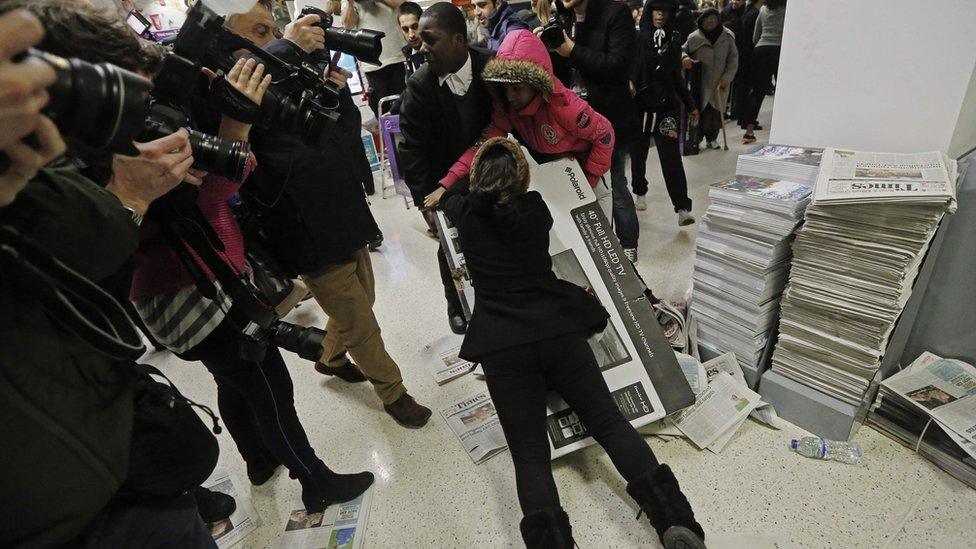
Buy Nothing Day, Black Out Black Friday, Not One Dime - as Black Friday gets bigger each year, so too does the backlash against all the spending.
Shoppers are expected to spend almost £2bn, 19% more than on the same day in 2015, one report suggests, external.
But there are plenty of people who say they are going to actively not spend any money on the day.
As the boycott becomes more pronounced, more retailers are using an anti-consumerist message to boost brands.
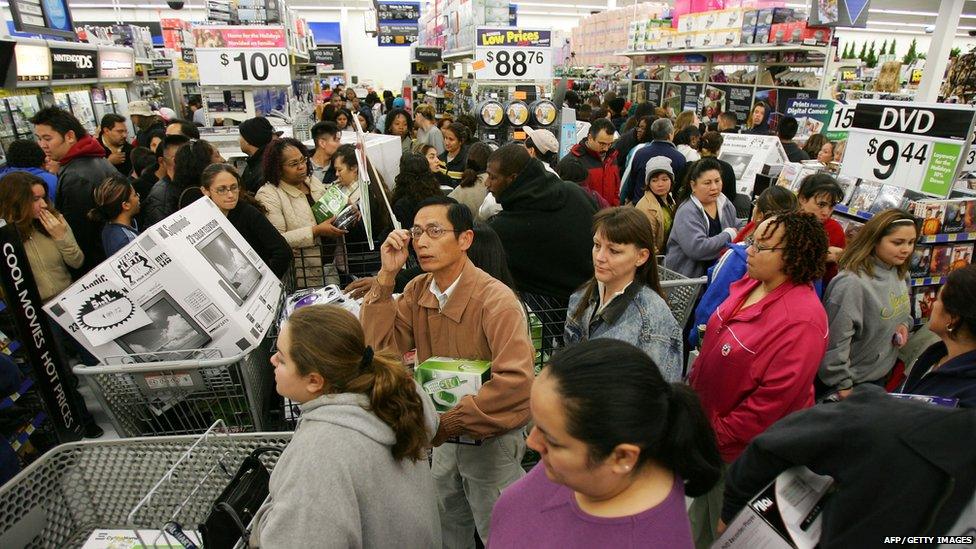
First introduced to the UK by Amazon, now a range of retailers such as Tesco, Argos and John Lewis discount prices.
In the US Black Friday follows the Thanksgiving holiday on the last Thursday of November.
Find out where the term "Black Friday" originally came from.
And just as the UK inherited the Black Friday sale from across the Atlantic, so too has the US-inspired backlash against the most consumerist day of the year.
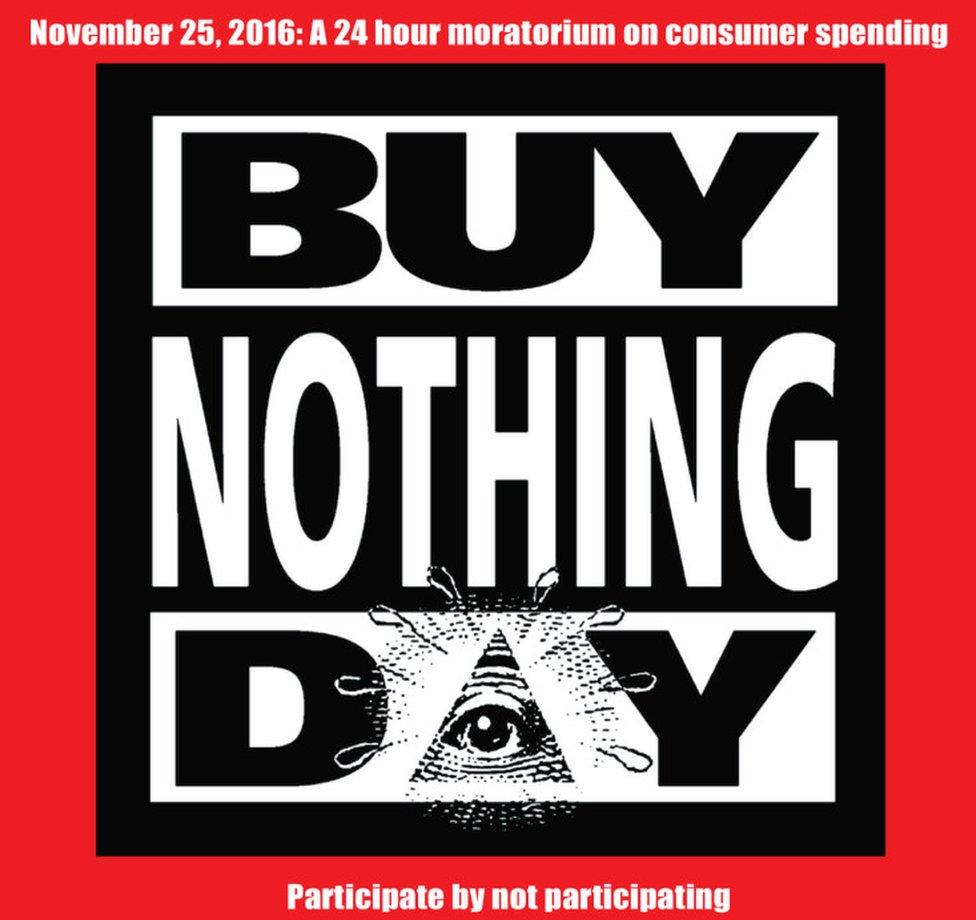
One of the most well-known anti-Black Friday movements is Buy Nothing Day.
Supported by the Canadian magazine Adbusters, Buy Nothing Day has been running for more than two decades.
"Ignore Black Friday," organisers say.
"Try buying almost nothing for Christmas and you might experience the most joyous holiday season you've ever had.
"Buy nothing and experience everything."
Buy Nothing Day is said to be marked by people in more than 60 countries, including the UK, France and Japan.
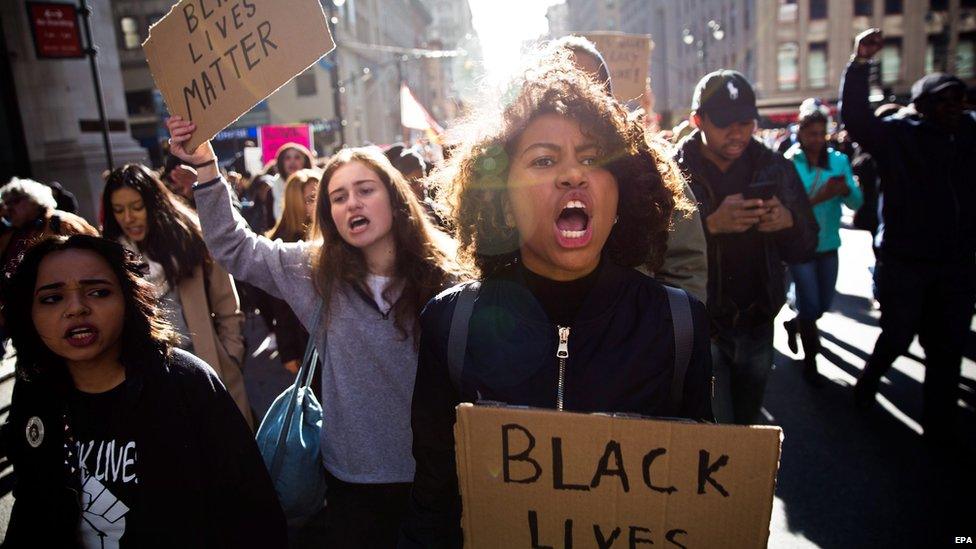
Tied into the Black Lives Matter movement in the US, many grassroots organisations use Black Friday to raise awareness of issues surrounding race.
Social media hashtags play on existing phrases to raise awareness of the purchasing power of African-American consumers and using that influence to bring about change.
Other campaigns seek to encourage shoppers to spend their money with independent retailers and businesses which are owned and run by black people.
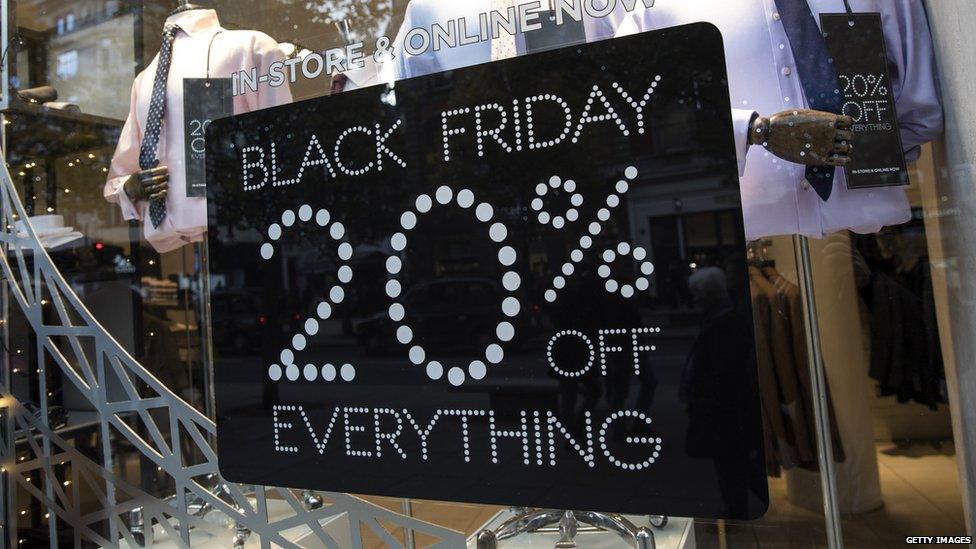
Environmental groups have also used the holiday to highlight how over-consumption has a negative impact on the planet.
One outdoor clothing retailer in the US, Patagonia, says it will donate 100% of its profits on Black Friday in support of grassroots environmental organisations.
In reference to the recent election of Donald Trump, Patagonia CEO Rose Marcario writes in an open letter, external: "During a difficult and divisive time, we felt it was important to go further and connect more of our customers, who love wild places, with those who are fighting tirelessly to protect them.
"The threats facing our planet affect people of every political stripe, of every demographic, in every part of the country.
"We all stand to benefit from a healthy environment - and our children and grandchildren do, too."
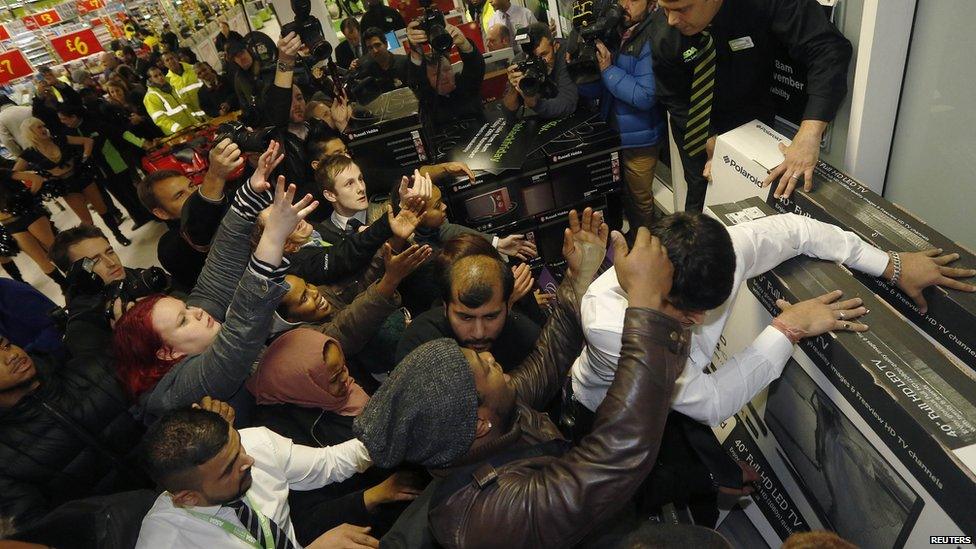
More and more, retailers are using anti-Black Friday messages to promote their brand ideals.
Last year REI, which sells recreational clothing and equipment, launched #OptOutside as a reaction to the shopping frenzy.
They closed all 143 of their US stores on Black Friday and paid for employees to "do what they love most - be outside".
The advertising agency which came up with the campaign later won numerous awards, external for their creativity.
Prize judges said the use of #OptOutside led to greater fan engagement, more interaction on social media and more mainstream media coverage.
Footage of shoppers scrambling to get their hands on merchandise
In the UK, Asda chose not to offer any Black Friday deals in 2015.
"The decision to step away from Black Friday is not about the event itself," Asda chief executive Andy Clarke said last year.
"Over the last two years we've developed an organised, well-executed plan, but this year customers have told us loud and clear that they don't want to be held hostage to a day or two of sales."
But in 2014 it, along with other supermarkets such as Tesco, saw scuffles break out between customers fighting for the best deals.
A year later and police were warning managers to make sure they had proper procedures in place to handle demand.
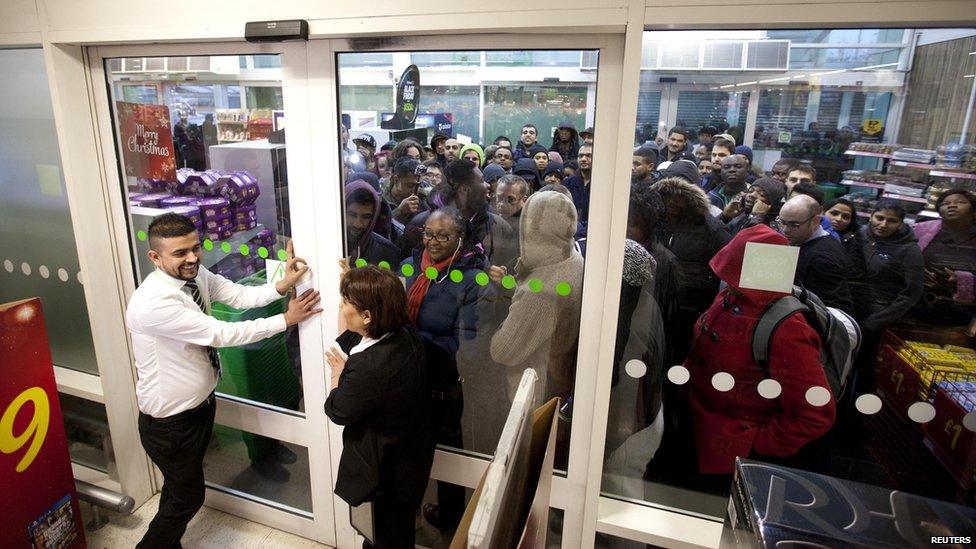
In the run-up to this year's Black Friday, I've been contacted by a couple of PR agencies, representing businesses who are promoting anti-consumerist or charitable messages.
Like their US counterparts, these organisations are using social media, charitable donations and grassroots activity to offer consumers something other than a day of shopping.
Alternative and altruistic on the face of it, these are still advertising campaigns.
And while they may help promote the brand in question, with record-breaking sales predicted on Friday, it's not clear how effective they will be at encourage us to turn away from the tills.
Find us on Instagram at BBCNewsbeat, external and follow us on Snapchat, search for bbc_newsbeat